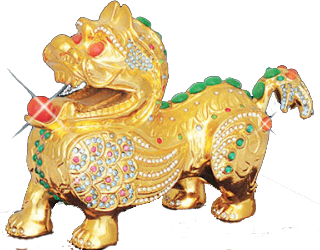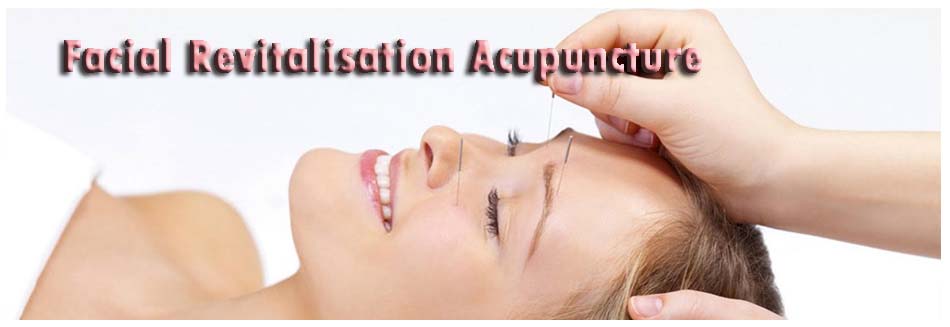Condition Treated / Emotional / Behaviour Conditions
Depression
Depression
Depression is a psychological disorder characterized by a negative mood and pessimism. Patients
with this disease always sigh in despair, feel sad, and lack enjoyment. It may be accompanied by
some of the symptoms such as headache, upset stomach, fatigue, diarrhea, and nightmares. In
severe cases, the patients can be very pessimistic or even commit suicide. This disease is closely
related to patient's personality. The trait of most patients is introverted, anti-social,
sentimental and dependent.
Causes and Pathogenesis of the Disease
Severe or chronic psychic trauma, such as major turmoil in life or career and disharmonious
interpersonal relationships are usually the predisposing cause of depression. The psychological trauma may stimulate the cerebral cortex excessively and cause a
disturbance between the cortex and sub-cortex.
Identification of Patterns
Chief symptoms Depressed mood, feeling sad, irascibility, insomnia with profuse dreaming, and
poor appetite.
The pattern of Iiver-qi stagnation can be accompanied by distension and fullness
in the chest and hypochondriac regions, abdominal fullness, belching, irregular bowel movements, a
thin and white tongue coating and a wiry pulse.
The pattern of transformed fire from the depressed qi can manifest as irritability and angriness, a bitter taste in the mouth, dry throat, headache, red eyes, constipation, a red tongue body with a yellow coating and a wiry, rapid pulse.
The pattern of qi-phlegm binding can be accompanied by a lump in the throat, which cannot be swallowed or spit out, a greasy tongue coating and a wiry, slippery pulse.
The pattern of both heart-spleen deficiency can manifest as thinking too much and excessive worry, palpitations, fear, insomnia, forgetfulness, poor appetite, a dim complexion, a pale tongue and a thready pulse.
The pattern of both liver and kidney deficiency can be accompanied by dizziness, tinnitus, dry eyes, photophobia, palpitations, restlessness, vexing heat in the chest, palms and soles, night sweats, dry mouth and throat, a dry tongue with decreased saliva production, and a thready, rapid pulse.
Treatment
(1) Primary treatment
Principal points Baihui (GV 20), Shuigou (GV 26), Shenmen (HT 7), Neiguan
(PC 6), and Taichong (LR 3).
Supplementary points Add Danzhong (CV 17) and Qimen (LR 14) to the pattern of liver qi
stagnation; add Xingjian (LR 2) and Xiaxi (GB 43) to the pattern of transformed fire from depressed
qi; add Fenglong (ST 40), Yinlingquan (SP 9) and Tiantu (CV 22) to the pattern of qi-phlegm
binding; add Xinshu (BL 15), Pishu (BL 20) and Zusanli (ST 36) to the pattern of both heart and
spleen deficiency; and add Ganshu (BL
18), Shenshu (BL 23) and Taixi (KI 3) to the pattern ofliver and kidney deficiency.
Explanation The brain is the house of the original spirit. The Governor Vessel enters and connects to the brain. Baihui (GV 20) and Shuigou (GV 26) induce resuscitation and adjust the spirits. Shenmen (HT 7) is the Yuan-Source Point of the heart channel, and Neiguan (PC 6) is the Lua-Connecting Point of the pericardium channel. These two points can calm the heart and spirit. Neiguan (PC 6) can also open the chest and sooth the qi. Taichong (LR 3) can soothe the liver qi.
(2) Alternate methods of treatment
Auricular acupuncture Select 3 to 5 points from Shenmen (TF 4), Subcortex (AT64), Sympathesis (AH 6a), Heart (CO 15), Liver (CO 12), Spleen (CO 13), and Kidney (CO 10) and treat
using filiform needles for a duration of20 minutes once daily, with ten treatments constituting a
full course. The above points can also be treated by ear-pressure with wang bu liu xing (Semen
Vaccariae). Replace them every 3 to 5 days.
(3) Commonly-used patent Chinese herbal products
1. Gun Shi Meng Tan Wan Actions: Resolves phlegm, reduces fire and calms the mind. Indications:
Manic condition due to phlegm-fire disturbing the heart-mind.
2. Ren Shen Gui Pi Wan Actions: Supplements qi, strengthens the spleen, nourishes blood and calms
the mind. Indications: Depressive condition due to deficiency of both the heart and spleen.
3. Wan Shi Niu Huang Qing Xin Wan Actions: Refreshes the mind, clears heat, resolves phlegm,
reduces fire and calms the mind. Indications: Manic condition due to internal exuberance of
phlegm-fire.
Life style recommendations
1. Regulate mental state and avoid or reduce external pessimal stimulation;
2. Keep well-balanced diet, stop hot, spicy and greasy food and reduce cold and uncooked food;
3. Take preventive measures for those with severe conditions to avoid unexpected accidents;
4. Combine psychotherapy to those with self-control ability.
Summary
The etiology of depressive-manic syndrome includes yin-yang imbalance, emotional depression,
upward-disturbance of phlegm-qi, and qi and blood stagnation. It is located in the brain and
related to the liver, spleen and kidney. The essential pathogenesis of depressive-manic syndrome is
yin-yang imbalance and disturbance and disorder of the heart-mind. Prior to treatment, depressive
or manic condition and deficiency or excess must be differentiated first. The treatment principle
for excessive depression is to regulate qi, relieve stagnation, resolve phlegm and refresh the
mind. The treatment principle for deficient depression is to strengthen the spleen and nourish the
heart. The treatment principle for excessive mania is to calm the mind, resolve phlegm, and clear
liver-fire. The treatment principle for deficient mania is to nourish yin and reduce fire. In
addition, those with depressive-manic syndrome need to be take good care in order to prevent
unexpected accidents.
Acupuncture therapy has good therapeutic effects in treating this disease. It is advisable to
combine it with psychotherapy.
Pain Care Acupuncture Clinic is your local acupuncture office in Torrance, CA . specializing in treating injuries and chronic pain. Dr. Ming Chen and Dr. Lu Yang, Both acupuncturists who also the oriental medical doctor ( O.M.D. ) can pinpoint the cause of the injury and suggest the best treatment methods for you. You need our doctor to listen to the whole story and examine you, so that you can get started treating on your injuries or chronic pain and get you on the track toward recovery.
Call now for a free health consultation !
Visit out Pain Care Acupuncture Clinic in;
21320 Howthorne Blvd., Suite 203 Torrance, CA 90503
quick link
Condition Treated
- Pain Conditions
- Respiratory System Conditions
- Digestive System Conditions
- Circulatory System Conditions
- Blood System Conditions
- Endocrine System Conditions
- Nervous System Conditions
- Urogenital System Conditions
- Gynecological Conditions
- Tumour Conditions
- Emotional/Behaviour Conditions
- Sensor Organ Conditions
- Skin Conditions
- Other Conditions
 La acupuncture
La acupuncture













